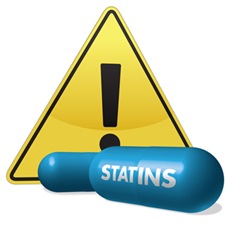 Print This Post
Print This Post
New Research Into Statin Drug Memory Loss
Written by Wellness Club on May 31, 2013 – 2:11 pm -Part III of a multi-installment series on cholesterol and the dangers of statin drugs.
Part II can be found here: Trade Your High Cholesterol For Diabetes!
Part I can be found here: Lower Your Cholesterol – Lose Your Marbles?
By Nurse Mark
 With evidence growing daily of the damaging health effects of statin drugs, more and more researchers are turning their attention to the problem and new information is emerging that helps to explain how these drugs do their damage.
With evidence growing daily of the damaging health effects of statin drugs, more and more researchers are turning their attention to the problem and new information is emerging that helps to explain how these drugs do their damage.
University of Arizona researchers have described their findings in a April 8, 2013 news article: Research Reveals Possible Reason for Cholesterol-Drug Side Effects
A University of Arizona research team has made a novel discovery in brain cells being treated with statin drugs: unusual swellings within neurons, which the team has termed the “beads-on-a-string” effect.
According to researchers:
In addition to detecting the beads effect, the team came upon yet another major finding: when statins are removed, the beads-on-a-string effect disappears, offering great promise to those being treated with the drugs.
The research team is also looking into whether there may be a genetic susceptibility to this distressing effect of statins on neurons, which are the nerve cells that make up our brains and nervous system – but for now, the good news in this report is that the swellings that cause the neurons to malfunction and thus cause memory to disappear and thinking to be clouded tend to get better and eventually disappear after the statin drugs are stopped:
… Chuang was testing gene mutations and found variation in sensitivity to statins. It was through the work of Chuang and Kraft that the team would later determine that, after removing the statins, the cells were able to repair themselves; the neurotoxicity was not permanent, Restifo said.
“In the clinical literature, you can read reports on fuzzy thinking, which stops when a patient stops taking statins. So, that was a very important demonstration of a parallel between the clinical reports and the laboratory phenomena,” Restifo said.
Whatever the cause for this statin-caused memory and mental function impairment, it is reassuring to know that it need not be permanent – and that simply stopping the drug can allow memory and clear thinking to return.
Too bad the other dangerous side effects of statins like Type II diabetes, liver failure, and muscle damage aren’t temporary!
Additional reading:
Please read our recent article on Statins and Memory Loss: Lower Your Cholesterol – Lose Your Marbles?
FDA Consumer Information: FDA Expands Advice on Statin Risks
http://www.fda.gov/ForConsumers/ConsumerUpdates/ucm293330.htm
FDA Drug Safety Communication: Important safety label changes to cholesterol-lowering statin drugs
http://www.fda.gov/Drugs/DrugSafety/ucm293101.htm
Dangers of Statin Drugs: What You Haven’t Been Told About Popular Cholesterol-Lowering Medicines
Sally Fallon and Mary G. Enig, PhD
http://www.westonaprice.org/cardiovascular-disease/dangers-of-statin-drugs
Related Posts
 Print This Post
Print This Post

Posted in Cholesterol | Comments Off




































